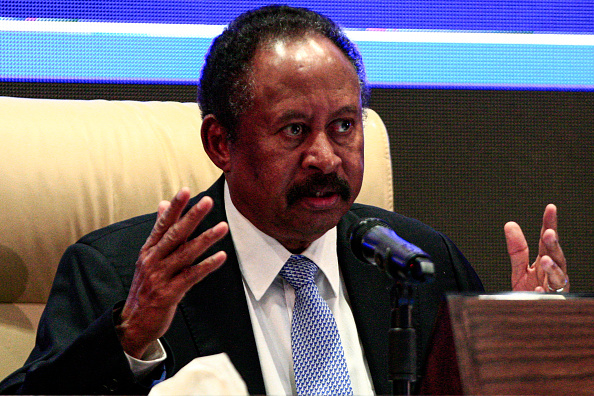Khartoum – Sudan’s prime minister Abdalla Hamdok was the face of the country’s fragile transition to civilian rule for more than two years before he was ousted and detained in a coup last month. Now he’s back.
After weeks of house arrest, during which Sudan was rocked by mass protests, he officially returned to government under a deal signed with military leader General Abdel Fattah al-Burhan in a televised ceremony.
Hamdok, a British-educated economist who worked for the United Nations and African organisations, carved out an image as a champion of good governance and transparency over the course of a long and varied career.
He emerged as Sudan’s civilian leader after a wave of unprecedented, youth-led protests brought down long-time autocrat Omar al-Bashir, who was arrested by the military in April 2019.
ALSO READ | Sudan PM Hamdok reinstated after coup but protests flare again
Hamdok was outside Sudan and not directly involved in the protest movement, but the appointment of the moustached technocrat was cheered by much of the population and greeted by the international community.
“With the right vision, with the right policies, we will be able to address this economic crisis,” he said after taking his oath to lead the transitional government under a power-sharing deal with the generals.
“He has the skills we need the most at the moment,” Sumaila Ibrahim, a student at Khartoum University, a hub of the protest movement, said at the time.
But Hamdok’s challenges were huge: political turmoil and economic crisis, shortages of basic commodities, and the need to rebuild a banking sector then on the verge of collapse.
Village turned warzone
Hamdok was born in 1956 in the state of South Kordofan.
After completing a degree in agricultural economics in Khartoum he moved to Manchester in the United Kingdom for his masters.
Years later his home state found itself on Sudan’s southern border when South Sudan became independent in 2011 after decades of war with the north.
ALSO READ | Sudan PM Hamdok freed from house arrest, his office says
His own village turned into a war zone and Hamdok was keen to push for a resolution to Sudan’s civil conflicts.
Hamdok drew on his experience in various African peace-building initiatives when Sudan signed a deal with rebel groups in October 2020 to end unrest in Sudan’s regions of Darfur, Kordofan and Blue Nile.
Prior to joining the post-Bashir transition he was deputy executive secretary of the UN’s Economic Commission for Africa in Addis Ababa.
In 2018 Hamdok had turned down an offer by Bashir to become finance minister as part of a government reshuffle.
Reforms spark protests
Bashir’s regime had long been under crippling US sanctions but, with Hamdok’s government in power, Washington removed Sudan from a sponsors of terrorism list.
That and debt relief from international creditors opened the way for foreign investment.
The trade-off was tough economic reforms, many painful for the Sudanese people. His government scrapped subsidies on petrol and diesel and carried out a managed float of the Sudanese pound.
Many Sudanese saw the measures as too harsh and anti-government protests broke out in several parts of Sudan.
Delays in delivering justice to the families of those killed under Bashir, and even during the 2019 protests following the autocrat’s ouster, also left Hamdok vulnerable to criticism.
ALSO READ | Hundreds protest in Sudan ahead of planned mass anti-coup demos
His troubles escalated from mid-September when anti-government protesters blockaded Sudan’s main seaport, triggering nationwide shortages in wheat and fuel.
Divisions deepened within the Forces for Freedom and Change, the umbrella civilian alliance which had spearheaded the protests against Bashir, and which picked Hamdok as premier in 2019.
The compounding political and economic problems augured Burhan’s October military coup.
On Sunday, Hamdok was released from house arrest even as police again clashed with protesters, set to once more help shape the future of his strife-torn country.
The ambassador of key diplomatic player Norway, Therese Loken Gheziel, voiced her confidence in him days ago, saying that Hamdok “can be that bridge that gets this country over … troubled waters”.
Follow African Insider on Facebook, Twitter and Instagram
Source: AFP
Picture: Getty Images
For more African news, visit Africaninsider.com


